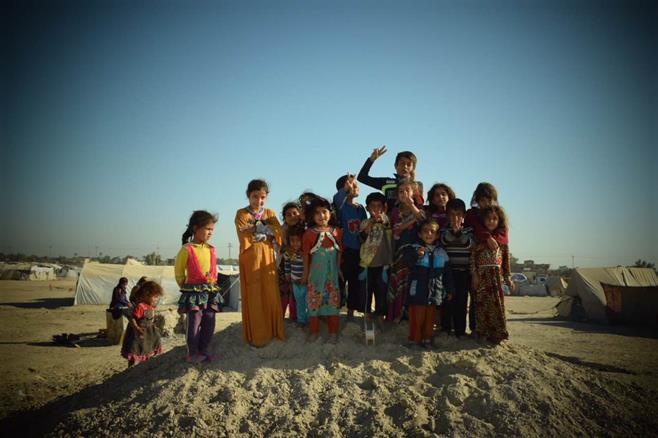Infrastructure education and development provides a sustainable living environment and generates income for displaced persons in Iraq.
For many camp residents in Bzeibiz and Khaldiyah Iraq, life is tough. The people are in need of support to provide a safe environment and better the well-being of their families and their community. Residents constantly bare the burden of electricity outings, as infrastructure is often in need of repair. With the help of Blumont and the UNHCR-funded Camp Coordination and Camp Management (CCCM) program, displaced residents have implemented quick impact projects in 10 camps and settlements to provide urgent infrastructure upgrades and generate incomes to support their families inside the camps.
With the help of camp management officials, the hired camp residents are able to participate in a cash for work (CFW) initiative, giving them the opportunity to learn essential electrical and engineering techniques and earn an income. Using such knowledge, residents are provided the opportunity to generate incomes and support their families inside the camps. Through innovative, comprehensive training on electricity, displaced residents acquired electrical skills which allowed them to work on complex electrical networks and provide support to the existing electricians in the camps.

Children at Bzeibiz camp can now play and move around without fear of stepping on sharp electrical wires.
To further ensure the sustainability of the infrastructure improvements, chosen camp residents were introduced to Blumont engineers to acquire appraisals and were provided toolboxes to guarantee them the ability to maintain the electrical networks and connections without requiring outside support.
Haitham Suleiman said of the project, “The activity of cash for work CFW provided a safe environment for the women and children inside the camps, and reduced the cases of violence through upgrading the camp electricity utilities.’’ Haitham went on to say, ’’I hope that Blumont continues to implement such activities in other camps in Anbar province, to support many other IDPs [internally displaced persons] and push the progress of requirements for having a dignified lifestyle inside the camps.’’
Ahmed Mahmoud added, “The CFW activity provided a safer environment and adequate living conditions and protection for IDPs inside the camps. The maintenance for the main electricity board and raising electricity wires from the ground by putting in electrical columns was the most important part of this activity. This will protect IDPs from electric shock, especially the women and the children, and it provided a chance for some IDPs to have livelihood resources even if it is for a limited period.’’
CCCM is funded by the United Nations High Commissioner for Refugees.
RELATED READING:
Children Smile at Bzeibiz as the Situation in Anbar Province Worsens
Water Department Staff Receive Critical Training



